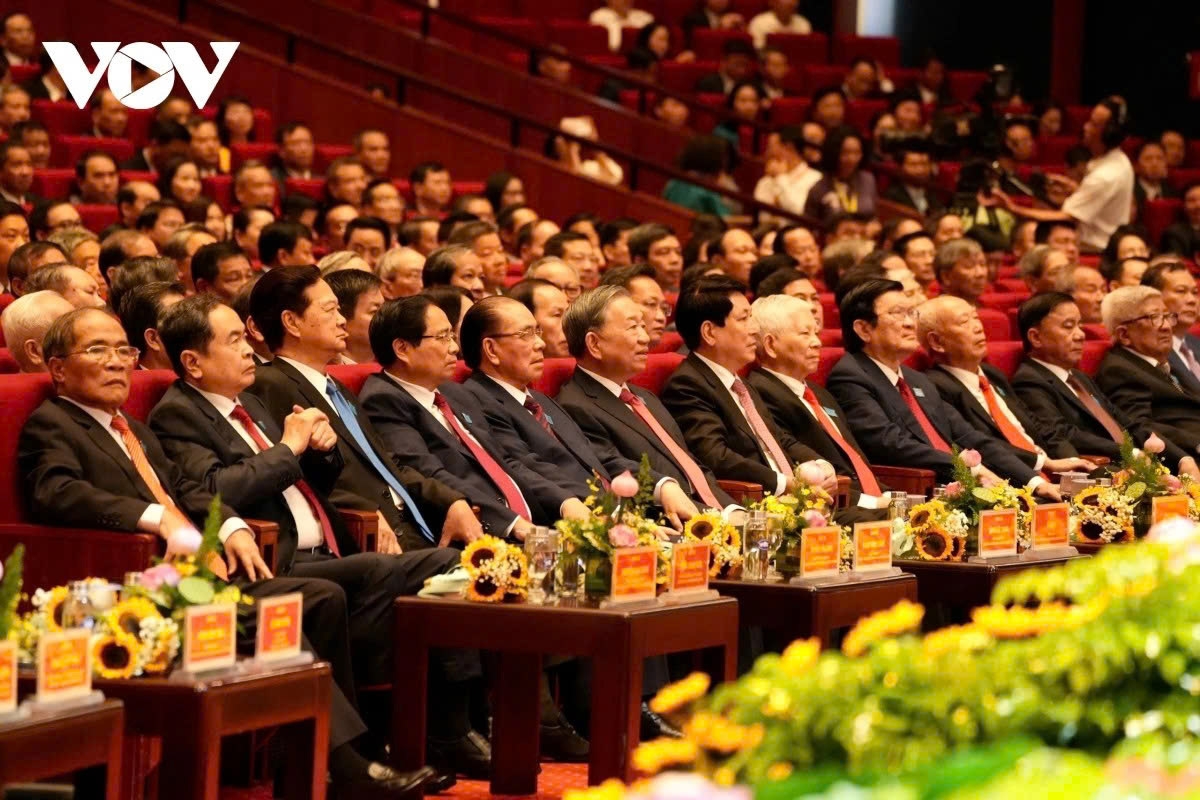Hanoi Party Congress opens with strategic roadmap for 2025–2030
VOV.VN - The 18th Congress of the Hanoi Party Committee for the 2025–2030 term opened at the National Convention Centre, bringing together 550 delegates representing nearly 500,000 Party members from 136 Party organisations in the capital city.

Present at the Congress were top Party and State leaders, including Party General Secretary To Lam, President Luong Cuong, Prime Minister Nguyen Minh Chinh, and National Assembly Chairman Tran Thanh Man, among others, along with former Party and State leaders.
It was also attended by veteran revolutionaries, Heroic Vietnamese Mothers, Heroes of the Armed Forces, and Labour Heroes.
The Hanoi Party Committee has set out an ambitious vision for the city by 2030. It aims to become a civilised, modern, green, and smart capital, and an international cultural hub with high competitiveness, on par with the capitals of developed nations in the region. It vows to ensure political and social stability, a peaceful environment, and a happy life for its residents.
A notable target is to raise the Human Development Index (HDI) to 0.88 and the Happiness Planet Index (HPI) to 9 out of 10.
Affirming its leading role, Hanoi is determined to serve as a converging and pioneering centre, driving development not only in the Red River Delta and northern region but also nationwide. The city also aims to become a major economic and financial hub, as well as a national centre for culture, education and training, healthcare, science, technology, and innovation.
In implementing key resolutions recently issued by the Political Bureau, Hanoi will actively propose and pilot new mechanisms and policies. With its existing potential, strengths, and resources, the city plans to take the lead in experimenting with reforms, especially in fields such as science and technology, innovation, digital transformation, private sector development, education and training, and health care.
Operating under a two-tier local government model, Hanoi will continue to enhance decentralisation and delegation of authority to commune-level governments. It also plans to pilot effective and appropriate mechanisms in areas such as planning, investment, finance, urban development, land management, environment, culture, transport, population, and administrative structure. These reforms are designed to promote creativity, autonomy, and accountability, while ensuring checks and balances in public administration.
General Secretary To Lam is expected to deliver a keynote speech outlining the strategic direction for the capital’s development during the Congress.





